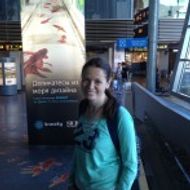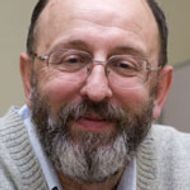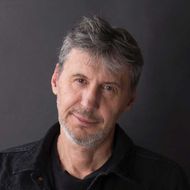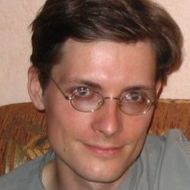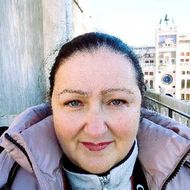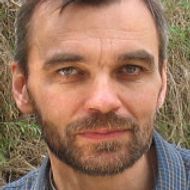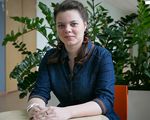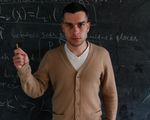- A
- A
- A
- ABC
- ABC
- ABC
- А
- А
- А
- А
- А
-
-
Departments
- International Laboratories
-
Educational Programmes
- Bachelor's Programmes
- Master's Programmes
- Doctoral Programmes
- Math in Moscow Programme
- REM and Summer University
-
Faculty
119048Moscow, Usacheva str., 6
phone/fax: +7 (495) 624-26-16
phone: +7 (495) 916-89-05
e-mail: math@hse.ru
Career Opportunities and Alumni
«A mathematician would do it better»
— Hugo Steinhaus
What are the career opportunities for someone with a degree in mathematics?
What areas, besides pure mathematics, have a demand for specialists with a mathematics degree?
Where do Faculty of Mathematics graduates continue their studies?
What are the career opportunities for someone with a degree in mathematics?
The most obvious positions would be as a researcher mathematician and lecturer, who proves new theorems and teaches mathematics to university or school students. This is a sought-after career path to take. For example, the professions of Mathematician and University Professor take the first two positions in the Jobs Rated international ranking, and Forbes magazine wrote: ‘...this year science and math are king on the job market’.
A typical pure mathematician’s career starts with doctoral studies and obtaining a PhD in Mathematics (2-5 years), and continues with post-doc positions (2-7 years), followed by a position at a university or research institution. Our first MSc students graduated in 2014, so our first graduates are at the very beginning of this path. That said we already have grounds to be proud of them, since about a quarter of our graduates enter PhD programmes at the world’s best mathematics departments, such as Harvard, Caltech, Columbia, MIT, Princeton, and ETH Zurich. Let’s hear from the graduates themselves:
But, globally, not many mathematics graduates choose this path. Most go on to knowledge-intensive industries where they earn on average more than their classmates who stayed within the comfortable confines of academia.
What are the competitive advantages for someone with a degree in mathematics, beyond pure mathematics?
- The fastest developing and most-in-demand sciences and applications of this knowledge are either already replete with mathematical methods (economics and finance, computer science and IT), or are rapidly becoming saturated with them (linguistics, medicine, sociology etc). For example, economics was obviously part of the humanities a century ago, however, today, almost half of the Nobel Prize winners in economics have degrees in physics or mathematics. This process is now expanding into more and more areas, which increases the need for experts with mathematical skills everywhere.
- There is a job market signaling philosophy (incidentally created by one of the Nobel Prize winners in economics with a degree in mathematics), which can be simplified as follows. A university degree signals to the employer not only about a graduate’s specific knowledge, but also that they have sufficient motivation, skills, and effort to study such complicated issues for four years. From this perspective, a degree in mathematics is an exceptionally effective signal to the employer: as Alexander Alexandrov said, ‘Mathematics is useful because it’s difficult’. That’s why mathematicians are often hired for abstract, creative, or non-standard work, even if it doesn’t include any obvious mathematical component.
- Finally, the most important thing: mathematicians are able to solve new and complex problems. Most people become stressed and confused when they face a problem that they cannot solve. Mathematics graduates are a rare exception to this rule. Their research experience means that intellectual uncertainty is, for them, a normal working environment, and they are accustomed to having first to formulate the problem and then develop approaches to its solution.
That’s why mathematicians have been civilization’s ‘intellectual commando unit’ for over three centuries: they are at the forefront of most breakthroughs in science and applications, they develop new areas and organize the expert training process.
What areas, besides pure mathematics, have a demand for specialists with a mathematics degree?
It wouldn’t be an exaggeration to say that for a mathematics graduate the global labour market is so extensive that it includes the full range of intellectual areas of work. These related specializations give some idea of potential career opportunities:
Our students also have the opportunity to study all these fields. During the latter years of their undergraduate studies, and on Master’s programmes, they have the options of taking subjects taught by any HSE department, can attend the Yandex School of Data Analysis, choose a minor, and attend summer schools with Faculty support.
Where do Faculty of Mathematics graduates continue their studies?
Most of our graduates prefer continuing their studies rather than entering the jobs market. Here are some examples of the areas of their postgraduate studies:
- Mathematics
- Mathematical physics
- Theoretical economics
- Applied mathematics
- Applied economics
- Computational linguistics
- Data science
- Statistical and mathematical methods of analysis and forecasting in economics
Universities that Faculty graduates choose for postgraduate studies include:
- Higher School of Economics
- Harvard University
- Caltech
- Columbia University
- Leiden University
- MIT
- University of Michigan
- Pennsylvania State University
- Princeton University
- New Economic School
- Northeastern University
- Northwestern University
- University of Geneva
- Indiana Universityemploy
- University of Maryland
- McGill University
- University of Nice Sophia Antipolis
- University of Paris Sud
- Toronto University
- Stony Brook
- ETH Zurich
- Stanford
Where do Faculty of Mathematics graduates work?
Our faculty may be relatively young, but our first graduates who have sought careers outside academia have established themselves in insurance, analysis, IT and other knowledge-intensive areas in both Russian and international companies. They are also in demand in mathematical education – in international universities (MIT, University of Maryland), and at Moscow’s best schools (No 2, No 57, and No 179), as well as at HSE, where one of our graduates has received the Best Teacher award for the third year in a row.
Careers in business, economics and finance include:
- Actuary, Zurich
- Senior marketing analyst, Coca Cola Hellenic
- Head of corporate business department, Mezhtrustbank
- Senior analyst at broadband access and IPTV department, VimpelCom
- Senior expert at economic planning department, Bank of Moscow
- Auditor, KPMG
- Analyst, Axes Management
- Analyst, AT Consulting
- Business analyst, Leto Bank
- Leading business process expert at credit operations support department, Central Bank of Russia
Careers in IT:
- System architect, PayOnline
- Programmer, Delta Solutions
- Penetration tester, Insecurity
- Developer, Yandex
- Senior developer, TKS Bank
- Programmer, RadiumOne
Academic careers:
- Lecturers at the other HSE faculties
- Mathematics teachers at Moscow schools No 2, No 57, and No 179
- Postdocs at MIT, University of Chicago, Cornell University, Ecole polytechnique, Max Planck Institute for Mathematics
Useful links for graduates
Photos of past years’ graduates
HSE Alumni Association (including Facebook, LinkedIn , Vkontakte, Twitter)
FAQ for graduates (in Russian)
- About
- About
- Key Figures & Facts
- Sustainability at HSE University
- Faculties & Departments
- International Partnerships
- Faculty & Staff
- HSE Buildings
- HSE University for Persons with Disabilities
- Public Enquiries
- Studies
- Admissions
- Programme Catalogue
- Undergraduate
- Graduate
- Exchange Programmes
- Summer Schools
- Semester in Moscow
- Business Internship
- © HSE University 1993–2026 Contacts Copyright Privacy Policy Site Map
- Edit
